-
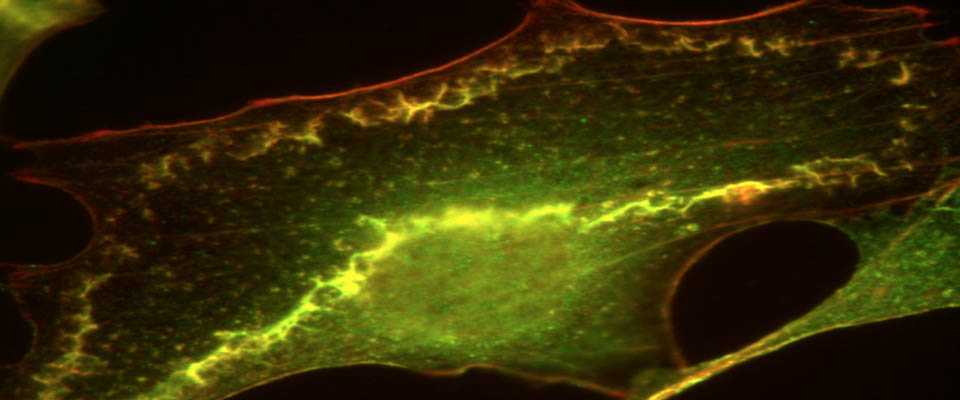
Defining the cellular mechanisms of liver and pancreatic cancer and metabolic disease
This pancreatic tumor cell shows the actin cytoskeleton (red) and the epidermal growth factor receptor (green). It illustrates how internalizing excess growth factor receptors contributes to unchecked growth.
-
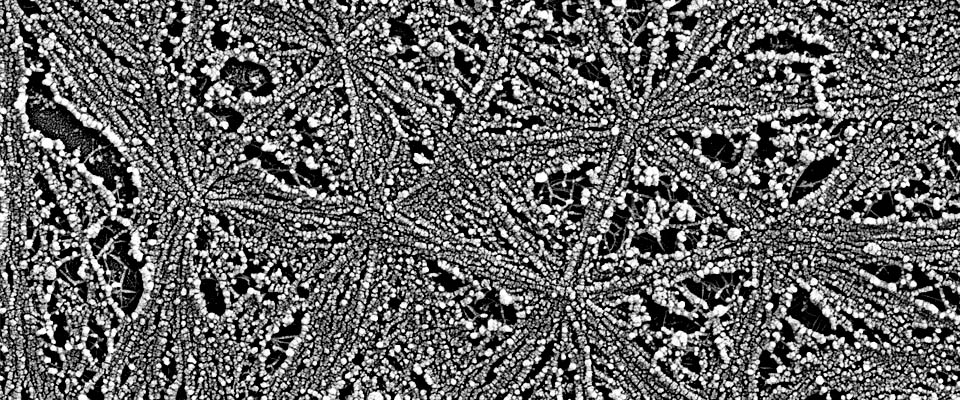
Understanding cytoskeletal dynamics that drive many cellular processes
Scanning electron micrograph of an "unroofed" cell showing the complexity of the actin cytoskeleton lying just beneath the plasma membrane. Actin filaments and even individual actin monomers can be visualized with this method.
-
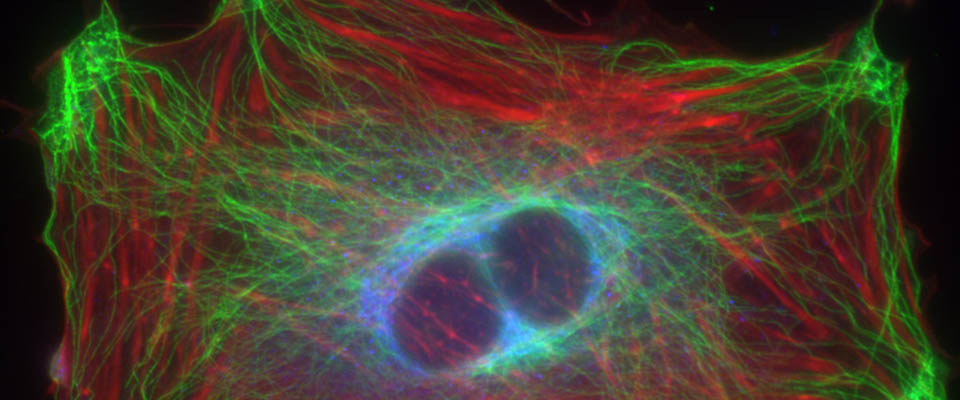
A cell's cytoskeleton contributes to its function, shape and motility, and it controls the trafficking of many different proteins and organelles in both healthy and diseased tissues
This fluorescence micrograph shows the actin cytoskeleton (red), microtubule cytoskeleton (green) and the Golgi apparatus (blue) in a healthy cell.
-
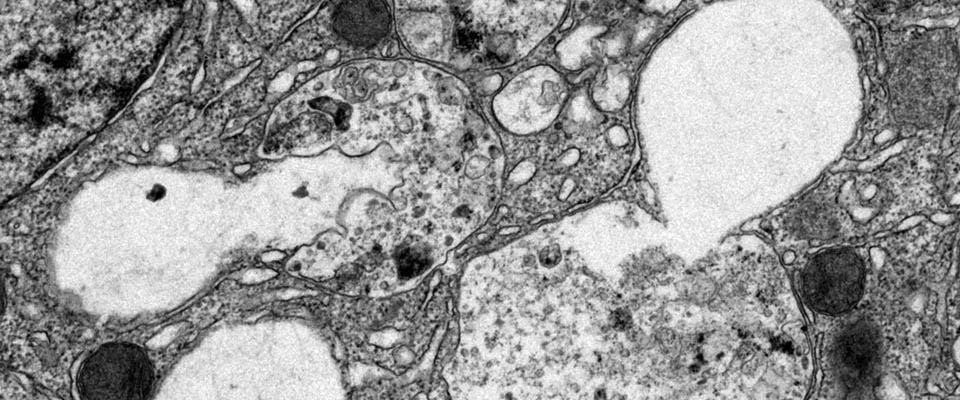
Autophagic processes are tightly controlled and are important for maintaining cellular health
Transmission electron micrograph showing fat (lipid droplets, large white structures) being catabolized by lysosomes through the process of autophagy after a period of nutrient restriction.
-
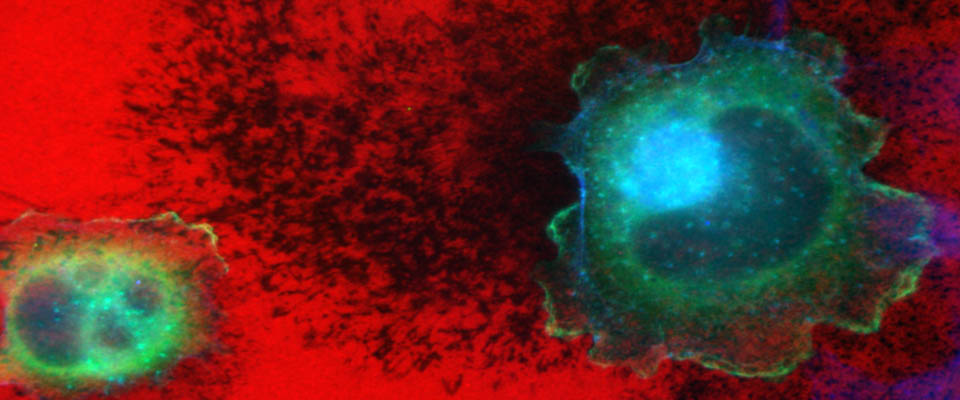
Defining the mechanisms of pancreatic cancer metastasis
Pancreatic tumor cell (actin, green) modifying and degrading extracellular matrix (red) as it migrates. The black areas are where the cell has secreted degradative enzymes and destroyed the extracellular matrix, a technique tumor cells use to invade into adjacent tissues during metastasis.
Overview
Mayo Clinic's Membrane Trafficking in Disease Laboratory is headed by Mark A. McNiven, Ph.D., Gina Razidlo, Ph.D., and Hong Cao, M.D. The lab's research is focused on membrane and cytoskeletal interactions that drive dynamic processes such as vesicle transport and migration that are essential to the health and disease of the pancreas, lung and liver. Disruptions to these dynamic functions can lead to life-threatening diseases such as cancer, steatosis or hepatitis.
Supported by the National Institutes of Health and National Cancer Institute, the lab's research is organized into three distinct but related disease-based focus areas that include:
Affiliations
The Membrane Trafficking in Disease Laboratory is affiliated with other Mayo Clinic research areas.